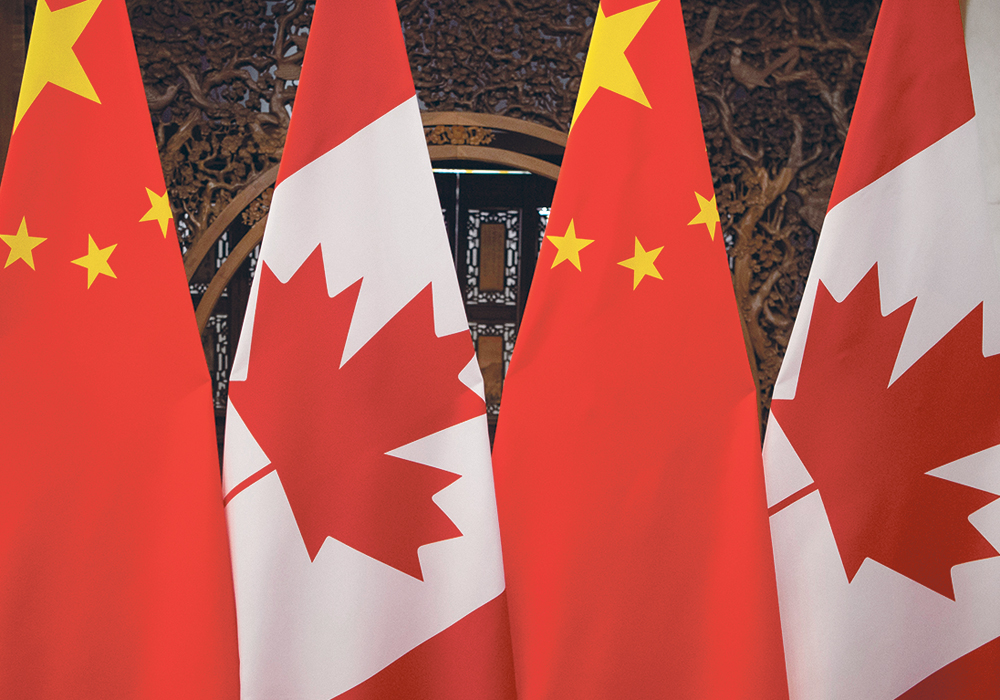A former diplomat says a high-level delegation from Canada could cause China to become more entrenched in its position
A political science professor and former counsellor at the Canadian embassy in China says it could be years before Canada reclaims its place in the Chinese canola market.
Charles Burton from Brock University said there are too many unstable factors to be able to predict a quick resolution to the situation.
“At the present time, I can’t be confident that our farmers would be able to regain the Chinese canola market any time soon,” he said.
Canada’s 43,000 canola growers have become the collateral damage in a diplomatic disagreement that began with the arrest of Huawei executive Meng Wanzhou in Vancouver under Canada’s extradition treaty with the United States.
Read Also

Critical growing season is ahead for soybeans
What the weather turns out to be in the United States is going to have a significant impact on Canadian producers’ prices
China first blocked canola imports from Richardson and then Viterra, saying the shipments contained pests and dockage. The Canadian Food Inspection Agency maintains it has found neither in repeated testing.
“The Chinese government are being willfully dishonest in this matter and it seems that Canada has no effective recourse in the sense that we have no means because we have a reputation to maintain for fair dealing and honesty and maintaining our commitments, to retaliate against China,” he said.
That said, Canada could expel diplomats or Chinese athletes who train in Canada. One former ambassador has suggested sending home the Chinese ambassador.
Another option is to crack down on factories in South China that move a lot of drugs into Canada, Burton said.
“I think we would have a legitimate basis for doing vigorous and slow inspections of all Chinese imports into Canada with a view to extracting any fentanyl from the shipping containers and envelopes before they reach the drugs market,” he said.
Burton said a high-level delegation from Canada likely wouldn’t produce any resolution and could in fact cause China to become more entrenched in its position.
Canadian canola growers have been here before.
In both 2009 and 2016 China flexed its trade muscles over concerns about blackleg in canola.
An agreement reached in September 2016 was supposed to guarantee shipments until 2020.
Guelph-based Agri-Food Economic Systems last week issued a policy note suggesting “an ominous situation is developing in global agricultural product markets” and the canola issue is just one of them.
The paper said that China can afford to restrict Canadian canola imports because there is no demand pressure; it has cut its imports of soybeans from the United States and expanded its soybean imports from Brazil.
“We should not expect any immediate resolution to the trade issues on (U.S.) soybeans or canola,” it said.
The U.S. is negotiating a trade agreement with China but Burton said the latter has proven to not be the best trading partner.
A report released last week by the Macdonald-Laurier Institute, of which Burton is a senior fellow, examined trade agreements between China and several countries and concluded Canada shouldn’t pursue a free trade agreement.
“The Chinese promise us more access to the market but what Ms. Chen’s report indicates is that countries that have negotiated free trade agreements with China have not got the desired effect,” he said referring to report author Duanjie Chen.
For example, on the day Switzerland signed its agreement with China it removed tariffs on 99 percent of its products. China dropped only parts of some tariffs and over five to 15 years.
Burton said China tends to impose non-tariff trade barriers when it looks like its trading partner is getting a fair shake in the Chinese market.
China is a member of the World Trade Organization but doesn’t follow its obligations under that pact. Burton said access to that market, however, might be better obtained through WTO channels.
“There is a consensus among WTO members that it’s time to stop giving China the latitude that we have up to now,” he said.
Canada cannot resolve this issue on its own, he added.
Burton also said the problem will continue until Meng is returned to Beijing or extradited to the U.S.
Her next court hearing is on May 6 and there is always a possibility she will cut a deal.
“Assuming the extradition hearing goes through, with appeals and delays, that could be a matter of years,” he said.
He noted that the judge initially granted Meng generous bail conditions because he said she could be in Vancouver involuntarily for up to a decade.
“This is just ridiculous and my heart really goes out to the farmers who have been just completely broadsided by this,” Burton said.


















